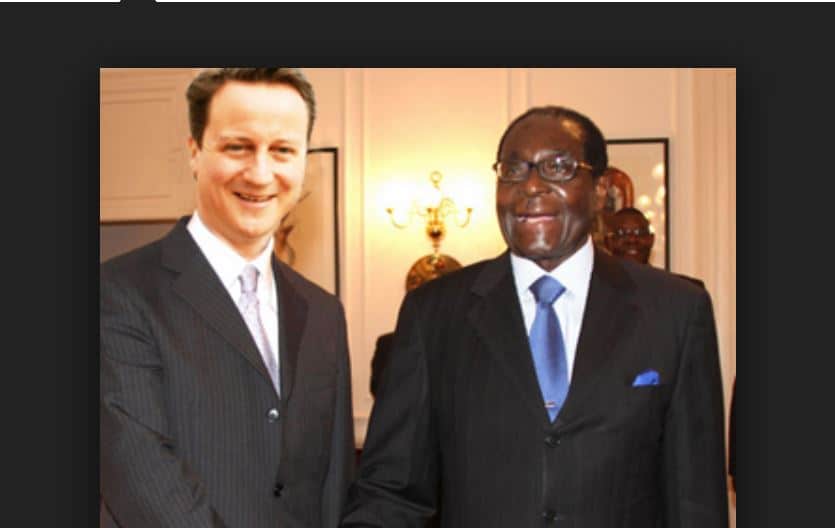ZwNews Chief Correspondent
“The rule of law is actually the most important of all… In the end, the fact that your government is subject to the courts and that your home is safe or your investments are safe, and government cannot confiscate what you have and that you can take government to court and win, are credibly important,” says Former British Prime Minister, David Cameron.
The former British Prime Minister strongly believes that where the rule of law is not respected, investors shy away and the economy catches a cold, as the case with Zimbabwe. The country has courted several foreign investors, MOUs inked, with most of them expressing interest to come back and invest, but no real action on the ground has taken place.
Over the years, including under the current administration led by President Emmerson Mnangagwa, Zimbabwe has been falling short in respecting the rule of law, this has been also cited by various political and economic experts, both foreign and local as one of the key issues hampering economic revival and growth.
Cameron told the Business Times on the side lines of a Discovery leadership conference held in Johannesburg, South Africa last week that investments flourish in environment where rule of law is respected, as it gives investors assurance that their properties are safe.
Cameron’s comments resonate well with the Constitution of Zimbabwe, a country that is on an economic free-fall, sliding into the financial oblivion, owing to fiscal indiscipline, and lack of rule of law. Section 3 of the Zimbabwean Constitution states that one of the key principles of good governance bind the state and its institutions to be subjects to the rule of law, as well as to giving due respect to vested rights, as enshrined in the supreme law.
Despite Zimbabwean Constitution which is the supreme law of the land; that overrides all any other laws that may be inconsistent with it, the state stand accused in failing to stick to its dictates. Meanwhile, on the hierarchy of the Constitution’s founding values and principles, respect for the rule of law comes second, after the supremacy of the Constitution.
As mentioned by Cameron, analysts have argued that where rule of law is absent, the economy chokes, as no investor would like to put his or her money where the state can ride rough on vested rights and rule of law.
Meanwhile, according to VERITAS Zimbabwe, a Constitutional watchdog, the doubts casted on the government’s commitment to property rights, rule of law, and the Constitution, has had a negative effect on the efforts the country is doing to revive the economy.
Cameron’s sentiments also came after the United States of America Ambassador to Zimbabwe, Brian Nichols had said the same thing, citing rule of law as one of the components upon economic and political blue prints are premised.
He was commenting on the Zimbabwe Democracy and Economic Recovery Act (Zidera) during an interview with a local radio station, this Act was passed by the USA Congress in 2001, and imposed restrictive measures on Zimbabwe supposedly to promote democratic transition.
Following the Zimbabwe’s recent disputed elections, the country’s economy which had been under the load of mismanagement, went a gear higher sliding into oblivion. The issue of legitimacy used its gravitas to pull down any prospects of economic revival under the new guard, and so did the issue of lack of respect to the rule of law.
Political analyst Elder Mabhunu urges the government to step up efforts to return to the rule of law, if it to get out of the current economic situation. He adds that the recent election which was observed by foreign monitors, has put the country in the spotlight, after they produced tainted pictures, owing to the flaws that happened.
He said it is therefore important for the government to return to constitutionalism, a key component to unlock foreign direct investments, the badly needs.













